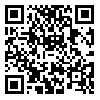BibTeX | RIS | EndNote | Medlars | ProCite | Reference Manager | RefWorks
Send citation to:
URL: http://erfaniyat.iauh.ac.ir/article-1-112-en.html
In the literature of Sufism, as the outcome of the thought and experiences of the Iranian great sufis and Gnostics, there are many words whose application has been beyond their literal and actual meanings. They have also been used in different aspects of Gnostic texts. In the domain of Sufism and Gnosticism, one of these words is “poverty’’.
It is conveyed that poverty belongs to man and independence is the characteristic of the suprime being of the almighty. In this article, we attempt to attain the opinions of the great gnostics in this regard.
What we focus on here, analysis of the ideas of two distinguished Gnostics, "Ali Hojviri" the owner of the "Kashf almahjoob", and Aziz Alddin Nasafi the author of the "Ensane kamel". In order to increase the validity of the task, we have also tried to utilize the views of other great scholars of Gnosticism and Sufism.
Received: 2016/06/27 | Accepted: 2016/06/27 | Published: 2016/06/27
| Rights and permissions | |
 |
This work is licensed under a Creative Commons Attribution-NonCommercial 4.0 International License. |





